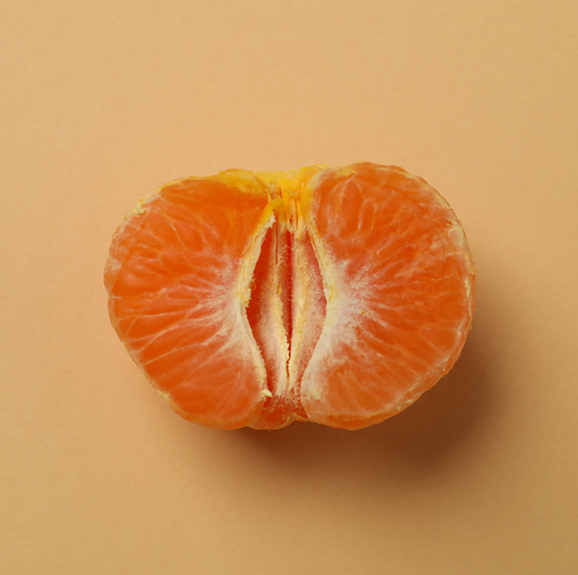
Every body is unique in its own way. But in general, when it comes to vaginal discharge—or, in other words, cervical mucus—they are a common factor for people with a vagina. Even though there is no standard for "normal vaginal discharge", it can be of several types, all of which are absolutely normal.
We are talking about the fluid necessary for the proper functioning of your vagina: it helps to clean it, removes bacteria and maintains a neutral pH at the same time. It is usually odorless, has a clear texture and can be thicker or thinner. It all depends on the phase of your menstrual cycle you are in!
But is it that simple? Things can change at any time, regardless of your cycle, and you may have had the less-than-pleasant experience where vaginal discharge is minimal, or even absent. This can happen for a variety of reasons, including birth control use, dehydration, sexually transmitted infections, or other conditions. But to understand the lack of vaginal secretions, we have to start with the beginning: the phases of your cycle.
Cycle phases and cervical mucus

Photo source: 123rf.com
At the beginning of the cycle , on the first day of menstruation, your cervix does not produce secretions, because the hormone responsible for them (estrogen) is low. But at the end of the period, you will probably also notice cervical secretions and blood residues, which have a brown color. But just as well, secretions can be absent.
In the days following menstruation , estrogen begins to gradually increase so that it can help the production of secretions in the next phase. For now, however, cervical mucus is missing.
After the days of dryness, before ovulation , the secretions will have a thicker and creamier texture, and during ovulation when estrogen reaches a high level, the secretions can be slippery and have a texture like egg white. During this time - ovulation - your vagina will feel much wetter than usual. This is the phase when your cervix produces the most mucus.
Then follows the luteal phase, after ovulation . Here, things change a bit: the secretions will have a different texture and will be produced in less quantity. They will either be slightly sticky or missing. The high level of progesterone will influence the production of secretions and reduce them, giving signals that menstruation is approaching again: a new cycle will begin.
What is vaginal dryness?
Probably one of the most well-known factors that influence the way your body produces hormones and influences vaginal secretions, is pregnancy. In addition, cervical mucus can be affected by various infections, menopause, intimate hygiene, contraceptives (including the morning-after pill), breastfeeding, surgery, and various conditions or infections.

How do you recognize the symptoms?
Possible causes and how to address them
The most common causes of vaginal dryness are:
Medicines / contraceptives
Low estrogen levels
Task
In the case of low estrogen, ask your doctor for an estrogen therapy option, and if symptoms occur during sexual activities, you may want to spend more time on foreplay and use lubricants.
Apart from the causes already mentioned, contraceptives, drugs, pregnancy, or low estrogen level, there are, of course, other factors that can influence the cervical mucus.
Smokers have a higher risk of early menopause, which means that a number of menopausal symptoms, including vaginal dryness, will appear earlier.
Some women have increased urinary frequency or recurrent infections that, along with vaginal dryness, usually occur at menopause and are called menopausal genitourinary syndrome. Common treatment options include topical estrogen therapy, systemic estrogen therapy, topical lubricants, and moisturizers.
Another medical problem - Sjögren's syndrome - could be a cause of vaginal dryness. Sjögren's syndrome is a chronic autoimmune disease in which the glands that secrete fluids are attacked and destroyed by the body's own immune system, which, instead of protecting the body from infection and disease, reacts abnormally and attacks its own healthy cells and tissues.
Finally, if you've been trying to find a reason for your vaginal dryness and it's none of the above, there's one more factor, albeit a less obvious one: an allergy or irritation to chemicals in soaps, lubricants, or conventional vaginal products. menstruation.
The chemicals in most menstrual care products can cause vaginal dryness and irritation, so the solution is simple: choose only menstrual products made from organic cotton only . Plus, don't forget that your vagina cleans itself! It doesn't need internal washes or deodorants, and it can even harm its microbiome.






















